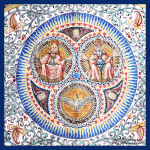We are beginning another liturgical year. The Liturgical year does not mean a closed-cyclical movement of an eternal return. Rather, it helps us understand our Christian faith’s fundamental truths, whose density never ends in time. Even though it was instituted in preparation for Christmas, Advent gradually took on a broader meaning. It is not only the preparation for the celebration of the memory of Christ’s first coming into the world, but also a time to become more convinced of his coming at the end of time. However, between these two visits, it is necessary to be vigilant and attentive to recognize his permanent coming in history today. As the Church says: “Now and in all times, He comes to meet us, present in every human person, so that we may welcome him in faith and witness him in charity, while we await the happy fulfillment of his Kingdom” (Brazilian Roman Missal, Preface of Advent I/A).
The theme of vigilance marks this Sunday’s Gospel passage. It starts with: “Be watchful! Be alert!” (greek: blépete groupneitei); and concludes with an emphatic invitation: “What I say to you, I say to all: Watch!” Both prophetic and sapiential literature present the importance and need for vigilance. In the Old Testament, the cities were garrisoned with towers where guards constantly remained to warn their inhabitants of any threat. These guards should remain with their eyes fixed on the surroundings to protect the city from any sudden invasion.
Jesus takes up the theme of vigilance again, underlining a new connotation. Surveillance is no longer seen as the static posture of a guard watching from the tower’s top to see or identify any surprises or threats. Rather, in the Christian perspective, the guard becomes the servant: “He leaves home and places his servants in charge” (greek: douloi, servants).” Now surveillance becomes operative, so it cannot be seen as an attitude of fear that paralyzes or inhibits. The guard is expected not to move from his post and remain attentive, but the loyal servant instead is expected to assume the mission entrusted to him by his Lord.
While the watchman remains at his post in order to announce the threat to the city as soon as something unfavorable happens, the servant on the other hand awaits the arrival of his master, who will repay him according to his conduct. In fact, the image of the guard in the Old Testament is paradoxical. He is placed in the tower because the possibility of the arrival of misfortune is imminent. However, he who placed him there does not want it to happen. Therefore, the guard hopes that what he is waiting for does not come.
In the case of the servant who waits for his master to arrive, the coming is sure even though he does not know the exact moment (greek: kairós, opportune time). Therefore, regardless of the time of his master’s arrival: “in the afternoon, at midnight, early in the morning or at dawn”, the most coherent attitude is to keep serving for he must do what has been entrusted to him.
Interestingly, the evangelist used the fourfold division of night (Roman scheme), from afternoon to dawn. This evokes Jesus’ death and resurrection. He died in the late afternoon, remained in the tomb in the night and early morning, but rose again at dawn. So it is with the servant who faithfully carries out his mission. Although he may go through the darkness of death, the encounter with his Lord will be like the dawn that never ends. It will be his kairós, so desired and awaited.
The Advent Season brings us to the awareness that the Lord will come, just as He came two millennia ago. However, it requires of us an attitude of constant vigilance because the Lord is among us. The best way to recognize this permanent coming is to become a servant. He who came not to be served but to serve and to give his life for many expects us to wait for him in the same way He was present among us, serving everyone.
Advent is not just a time to prepare Christmas ornaments, but, first of all, it is an opportune time (kairós) to learn the lessons of service which the Lord Himself gives us. This is the most certain way to prepare for the final encounter with Him when our vigilant service will turn into everlasting joy.




